MSP-OR
Duration
Months
Partners
ORs
Azores
Madeira
Canary Islands
French Guiana
Member States
Portugal (PT)
Spain (SP)
France (FR)
Estimated project cost
Requested EU contribution
Scroll for more
Months
Azores
Madeira
Canary Islands
French Guiana
Portugal (PT)
Spain (SP)
France (FR)
Scroll for more
Marine Spatial Planning (MSP) is a public process of analyzing and allocating the spatial and temporal distribution of human activities in marine areas to achieve ecological, economic and social objectives that have been specified through a political process.
MSP is not an end in itself but a practical way to create and establish a more rational use of marine space and the interactions among its uses, to balance demands for development with the need to protect the environment, and to deliver social and economic outcomes in an open and planned way.
MSP-OR will support competent authorities in the establishment and adoption of the EU MSP Directive (2014/89/UE), advancing the implementation of the MSP processes in the ORs of the Azores, Madeira, Canary Islands and French Guiana, contributing to promote ocean governance through MSP and applying the Ecosystem-Based Approach in MSP.
Scroll for more
– Development of an Outermost Regions Ocean Governance Platform to support cooperative governance by reinforcing communication between competent authorities, addressing the project’s topics, and giving floor for discussions, knowledge sharing and capacity building on ocean governance
– Filling gaps still hindering the advance of the MSP implementation in Outermost Regions (e.g. baseline information, interactive stakeholder engagement, sectorial frameworks)
– Definition of guidelines for the adaptation of the Ecosystem-Based Approach and the green/blue infrastructure of MSP in Outermost Regions
– Delivery of overarching guidelines and recommendations for monitoring MSP and its impacts in Outermost Regions
– Delivery of a repository of best practices and lessons learnt
Scroll for more
Launch the monitoring and evaluation of the MSP implementation and its impacts on the regional blue economy
Improve the implementation of MSP with an increased engagement and stakeholders’ involvement
Launch the MSP implementation accelerated by the advantage of sharing best practices with the European Macaronesian Outermost Regions (Azores, Madeira and Canary Islands)
Scroll for more
Scroll for more
– Strong coordinated and collaborative action between Member States and its Outermost Regions to foster cooperation
– Embrace common challenges and the specific needs of each Region, as well as the knowledge sharing and best practices exchange
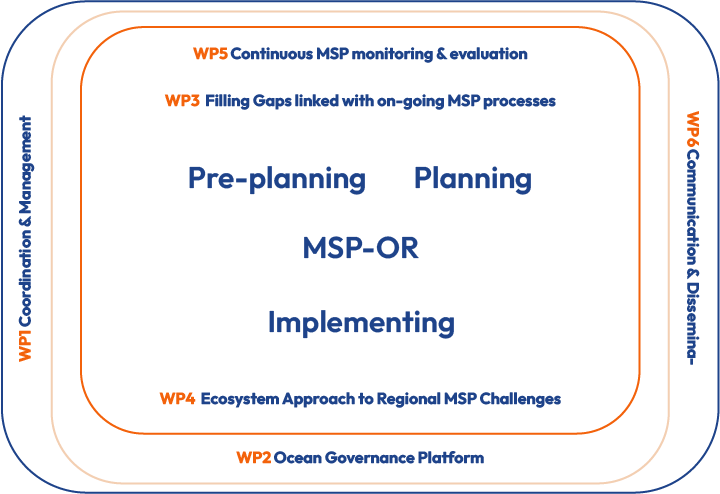
Scroll for more
Supports the consortium teamwork, coordinating and managing the general implementation of the project, monitoring and measuring project activities and results, and ensuring compliance with initial objectives.
MSP-OR is supported by a Steering Committee and an Advisory Board established by external and international experts.
Leader: FRCT
Participants: all partners
Develops an ocean governance platform, common to all the MSP-OR Regions, to support the regional MSP processes, focusing on EU Outermost Regions’ particularities and challenges. It intends to have a broad audience and coverage, bringing on-board different actors from the different Member States. Good practices already in place will be incorporated when suitable, building upon other successful initiatives. It will also facilitate discussion and sharing of experiences amongst the Member States, especially the national and regional authorities with competencies in MSP implementation, promoting cooperation and definition of common solutions in the MSP-OR participating regions.
Leader: FRCT
Participants: SRMP-DRPM, MTERD-DGCM, IEO (CSIC), FBIO, GOBCAN, ULPGC, Shom, SRMar-DRM
Contributes to fulfilling the gaps and mismatches that hinder the MSP implementation in each of the MSP-OR participating Regions, contributing to advance its development. Considering that these Regions are at different stages of the MSP implementation, they face common challenges, but have specific needs (e.g. baseline information or stakeholder involvement tools) that are individually addressed in the proposed activities.
Leader: GOBCAN
Participants: SRMP-DRPM, MTERD-DGCM, CEDEX, IEO (CSIC), FBIO, ULPGC, Shom, SRMar-DRM, DGPM, Cerema
Focuses on adapting the Ecosystem-Based Approach implementation to the Outermost Regions specificities and needs, proposing methodologies and testing them. As an essential tool to support the Ecosystem-Based Approach, it advances the development of the Green Infrastructure and pilot testing will allow MSP competent authorities to advance its implementation in their Regions, as well as advance the coherent and integrated implementation of environmental EU Directives.
Leader: Cerema
Participants: SRMP-DRPM, MTERD-DGCM, CEDEX, IEO (CSIC), FBIO, ULPGC, SRMar-DRM
Sets common guidelines and recommendations for MSP continuous monitoring and evaluation in Outermost Regions, identifies MSP performance indicators and proposes monitoring plans. It addresses monitoring in two approaches, monitoring of the MSP implementation process and monitoring of the MSP impacts on the blue economy of the MSP-OR Regions. Supported by the implementation of pilot tests, it develops adapted methodologies for each Region and provides tailored sets of indicators to be implemented by each National/Regional authority with competencies in MSP.
Leader: SRPM-DRPM, SRMar-DRM, DGPM
Participants: MTERD-DGCM, CEDEX, IEO (CSIC), FBIO, GOBCAN, Cerema.
It is devoted to communicating and disseminating the results of the project, with a relevant contribution to reach the stakeholders, and the public and to support the transferability of the results.
Leader: FRCT
Participants: all partners
Do you still have questions? Do not hesitate to contact us
Scroll for more
The Regional Fund for Science and Technology (FRCT) is a public agency of the Regional Government of the Azores, with the mission of promoting the Science and Technology System of the Azores (SCTA) R&D+I, through the funding of Research Grants & Fellowships; promoting the participation of other SCTA entities in international programs and projects; providing support to the SCTA in the preparation of project proposals; participating in R&D+I projects under external financing programmes.
FRCT is the MSP-OR coordinator, in permanent communication with the Consortium and representative for the communication with the European Commission. With the support and collaboration of the whole Consortium, FRCT is leading coordination and project management, the MSP-OR Ocean Governance Platform and the communication and dissemination actions within the implementation of the project.
The Regional Directorate for Maritime Policies (DRPM), from the Regional Secretariat for the Sea and Fisheries (SRMP) of the Regional Government of the Azores, acts as the regional competent authority for the development/implementation of MSP. DRPM’s goal is to promote integrated and sustainable management of the coastal and maritime space and its resources, by implementing policies related to promoting the blue economy via licensing of maritime uses and ensuring the conservation of the marine environment.
DRPM is co-leader of WP5 together with SRMar-DRM and DGPM, dedicated to tackling MSP monitoring and evaluation, aiming to set common guidelines, identify and test indicators, and design tailored monitoring plans. DRPM will contribute to specific subtasks under WP3 and 4, namely ensuring stakeholder/expert engagement to support MSP, fostering clarification on licensing, advancing coastal seabed mapping, and planning downscaling in offshore MPAs.
The General Directorate of the Coast and the Sea is one of the five Directorates integrated into the State Secretary of Environment, from the Ministry for the Ecological Transition and the Demographic Challenge. It is the National Competent Authority leading the implementation of the MSP processes in Spain, counting on the contributions of several other departments and institutions, as well as regional governments.
DGCM will support different Work Packages, especially those related to the stakeholder’s engagement and sectorial analysis in the Canary Islands. DGCM will also lead subtask 4.3, aimed to address a detailed analysis of requirements, measures and obligations emerging from the European environmental policies and their relationship to the MSP Directive, downscaled to the economic sectors of renewable energies and recreational activities in the Canary Islands.
The Centre for Studies and Experimentation in Public Works (CEDEX) is a public organism depending on two Spanish Ministries (Transports, Mobility and Urban Agenda and Ecological Transition and Demographic Challenge). It performs specialised technical assistance, based on testing on unique equipment; RD&I in the field of public works, sustainability, environment and CC; training and knowledge transfer.
It is divided into 8 Centres, with over 400 highly qualified technicians, scientists and general staff.
CEDEX has a wide experience in the context of European Directives implementation (WFD/MSFD) and European MSP cooperation projects (TPEA, SIMWESTMED, SIMNORAT). It has been highly involved in the technical implementation of the MSP Spanish national process, in close contact with stakeholders. In MSP-OR, CEDEX will continue exploring challenges of sectorial interaction for conflict mitigation, stakeholder participation, integration of new information for EA and MSP monitoring and performance.
IEO(CSIC) is a public research body dedicated to research in marine sciences, fishery resources and the marine environment. It depends on the Spanish Ministry of Science and Innovation and advises administrations on matters related to oceanography, sea sciences and fisheries resources. It provides technical support to the Ministry for Ecological Transition and Demographic Challenge concerning MSPD and MSFD implementation and it has participated in past transboundary MSP projects such as MarSP or MSPMED.
Due to its wide expertise in environmental assessment, such as Marine Strategies, and the work carried out to assess the designation of Marine Protected Areas, IEO has the capacity to give the project the integrated perspective of marine resources management based on the ecosystem. This is the reason why it will be leading the task on the integration of Marine Green Infrastructure in MSP to support the application of the Ecosystem-Based Management Approach.
Fundación Biodiversidad (FB) is a public foundation of the Ministry for Ecological Transition and Demographic Challenge in Spain, which aims to preserve the natural heritage and biodiversity and promote the generation of employment, working together with different organisations. Regarding European projects, the FB has managed more than 10 projects, among them, is coordinating LIFE IP INTEMARES, focused on a new management model for the marine sites of the Natura 2000 Network.
Fundación Biodiversidad (FB) is one of the project partners and is directly involved in capacity building activities and participatory processes in the Canary Islands aimed at the renewable energy and nautical sectors.
In addition, it carries out communication and dissemination actions, in coordination with Fundo Regional para a Ciência e Tecnologia, while supporting partners in other actions.
Gobierno de Canarias (GOBCAN), through their Dirección General de Ordenación del Territorio y Aguas, have the competence of coordinating the policy for the littoral in the Autonomous Region of Canarias, authorizing the different activities and uses in this territory. Gobierno de Canarias has recently gained the same competencies in the maritime area of the Region. GOBCAN aims to ensure the sustainable use of marine and coastal resources while developing the blue economy sectors.
GOBCAN role is to promote the overall project´s goal (MSP) participating in all Work Packages. Moreover, GOBCAN leads WP3 (Filling Gaps linked with ongoing MSP processes) coordinating all partners to identify and develop data that is needed for regional MSP processes, but it is still missing.
The University Las Palmas de Gran Canaria (ULPGC) is leading the use of new technologies & research tools related to Blue Growth. The Research Institute ECOAQUA works on applied topics in the field of MSP, contributing to its development at regional, national, and European levels. Their scientists work on marine zoning methodologies, marine conservation, ecosystem services, environmental & cumulative impact assessments, as well as in spatial data infrastructure & management.
The staff of the Research Institute ECOAQUA will contribute to MSP-OR with its expertise and know-how, covering both the ecological and technical aspects related to the MSP ongoing processes in the Outermost Regions. The ULPGC expertise will complement the contributions from other relevant MSP-OR partners, mainly those related to the Spanish governmental bodies, promoting the development of relevant products for inclusive, integrated and participatory approaches of MSP.
Shom is the French Hydrographic and Oceanographic Office, in charge of producing and providing the reference products and data describing the physical maritime environment necessary for:
– The safety of navigation at sea
– military support
– the elaboration and conduct of public policies at sea and on the coast.
The MSP-OR project will allow French Guiana to move forward with knowledge, providing a basis for launching the implementation of MSP principles and supporting the first steps of the MSP process in Outermost Regions.
Shom, as a project partner, is involved in this process by providing recommendations on the data format to be created for the Strategic Sea Basin Document and by providing its expertise on data security to link MSP with maritime security.
The Regional Directorate for the Sea (DRM) integrates the Regional Secretariat of the Sea and Fisheries (Madeira) and has the competence of proposing/coordinating the policy for the sea, in the Autonomous Region of Madeira. DRM aims to develop the blue economy sectors while encouraging the sustainable use of marine resources and promoting its investigation. Being the competent authority for maritime spatial planning, DRM ensures the licensing of activities and uses of the sea.
DRM role is to promote the further development of Madeira’s Situation Plan, and the implementation of oceanic MPAs (WP3 and WP4). Under WP3, DRM aims to identify and collect data that is currently missing from the Situation Plan and use it to determine the assignment of uses/activities to maritime areas. Through stakeholder and expert engagement, DRM will also identify indicators to develop a common road map for monitoring and evaluating the current progress on ORs Maritime Spatial Plans (WP5).
The Directorate-General for Maritime Policy (DGPM) is a governmental organisation within the Ministry of the Sea (Portugal), responsible for developing, evaluating and updating the National Ocean Strategy, coordinating international ocean affairs, and financial instruments related to the Integrated Maritime Policy (IMP) and for developing and coordinating ocean literacy initiatives.
DGPM is responsible for monitoring the implementation of the IMP and the Maritime Spatial Planning Directive (MSPD).
DGPM is responsible for co-organizing the WP3 consultation actions to support the development of the monitoring and evaluation methodology under WP5, considering the regional context of the Azores and Madeira.
DGPM is also responsible under WP5 for selecting a set of indicators for performance monitoring and evaluation of MSP in all the ORs, and developing a model for monitoring plan, sharing an overarching approach between the OR adapted to their specificities and needs.
Cerema, a French public institution, is a resource centre for scientific and technical expertise, in support of the definition, implementation, and evaluation of public policies. In recent years, Cerema has been further tasked to provide broad support to national maritime and coastal policies, such as spatial planning for marine renewable energy and marine aquaculture, integrated coastline management, and the support of MSP implementation in France (mainland and outermost regions).
As a partner of the MSP-OR project, Cerema contributes to the achievement of the project objectives. Alongside the Shom, Cerema is responsible for all tasks concerning French Guiana. In particular, Cerema is involved in the maritime planning of the sea basin at different levels: public consultation, mapping and socio-economic case studies, stakeholder engagement, in relation to the MSP authority. In addition, Cerema leads the WP 4 of the project: Ecosystem approach to MSP regional challenges.
Scroll for more
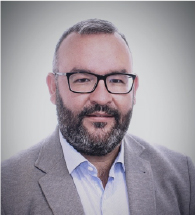
Deputy Secretary of the OSPAR Commission
“Our regions have a key role to play in building the future of the European Union and our outermost regions play a vital role in developing and implementing public policies for the benefit of the whole of Europe and the ocean we share.
It is a pleasure for me to contribute to the success of MSP-OR and to learn from this transoceanic family.”

Project Leader for the AM MSP Project
Chris McDougall is currently Project Leader for the AM MSP Project. Prior to this he was contract and finance lead for the Facility for EuroMed dialogue and exchange of best practices for Integrated Maritime Policy / Blue Economy project (2016-2019) and the IMP-MED Projects (2010 – 2014) supporting the Southern Mediterannean Coastal States in developing Integrated Maritime Policy and developing their Blue Economy.
Chris has a long track record in environmental impact assessment, the Blue Economy and Integrated Coastal and Marine
Spatial Planning.
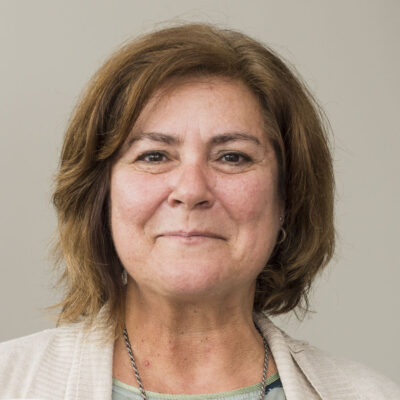
University of the Azores MARE - Marine and Environmental Sciences Centre
“This project promises to be a breakthrough for MSP in Outermost Regions by sharing knowledge and experiences. I will support the efforts of the consortium on pursuing advances on MSP practice tailored to these specific territories.”

Universidad de Sevilla
“The MSP-OR project illustrates the relevance of maritime spatial planning for an institution such as the European Union with responsibility for a maritime space with a wide projection in the global ocean. MSP is also an instrument that contributes to increasing the coherence of distant and island territories.”
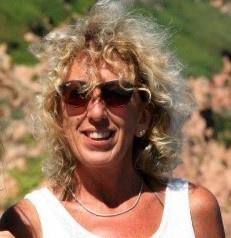
IPMA Portuguese Institute for Sea and Atmosphere
“The Ocean is a “territory” shared by different countries and their economic activities and is being seen as a challenge for emerging activities and an answer for the need of space for most of economic activities. The MSP is important for Ocean Governance and to promote the sustainability and to preserve marine ecosystems.
The MSP-OR is an opportunity to share knowledge and learn from the processes already in progress, but also from those who are on the earlier stages. It is important to understand the different challenges, cultures and tools used in regions that share the same sea.”
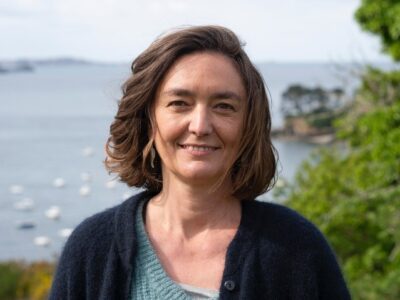
IRD
“The MSP-OR project is particularly interesting because it focuses on the impacts of MSP. Its original geographical scope will also allow the development of new collaborations. I’m excited to be able to follow the results of this project.”
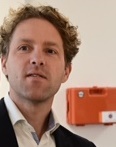
Project Coordinator eMSP NBSR
“Like the eMSP NBSR project, MSP-OR works on improving and implementing MSP. Both projects have overlapping themes and subjects, this is an excellent opportunity to learn from each other and to improve the quality of the results of both projects.”
Back to the top